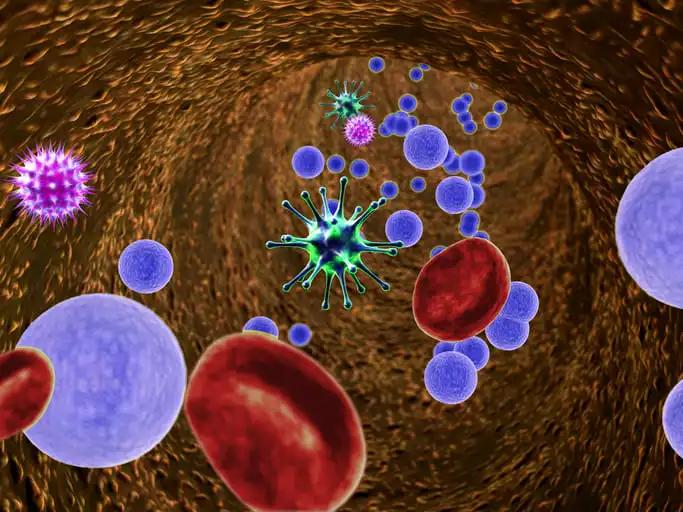KEY TAKEAWAYS
- The phase 3 PRESTO study evaluated the use of intensified ADT involving apalutamide (Apa) +/- abiraterone acetate plus prednisone (AAP) in high-risk, BCR patients.
- The trial involved three treatment groups: ADT, ADT+Apa, and ADT+Apa+AAP.
- Both experimental arms (ADT+Apa and ADT+Apa+AAP) showed significant improvements in PSA-PFS compared to the control group.
- The study confirmed the need for intensified ADT, including apalutamide or apalutamide with abiraterone, in high-risk BCR pts post-radical prostatectomy for extending biochemical PFS.
The results of the extended follow-up period of the PRESTO study indicated that administering intensified androgen deprivation therapy (ADT) with apalutamide (Apa) +/- abiraterone acetate plus prednisone (AAP) for one year has prolonged prostate-specific antigen progression-free survival (PSA-PFS) in high-risk biochemically relapsed (BCR) patients. This report presented the PSA-PFS outcomes with a more extended follow-up period.
During the phase 3 PRESTO study, patients (pts) with biochemically relapsed (BCR) after undergoing radical prostatectomy and PSADT of 9 months or less without distant metastases on regular imaging were randomly assigned to three groups who were given one year of ADT, ADT+Apa, or ADT+Apa+AAP, with PSADT being stratified (less than 3 months or 3-9 months). The study’s primary objective of PSA-PFS (>0.2 ng/mL) was evaluated for each experimental arm vs. the control group. This comparison took into account the PSA doubling time as a stratification factor. The study assessed each hypothesis with a one-sided alpha value set at 0.0125. The initial results from the first interim analysis, which included 102 PSA-PFS events in each pairwise comparison, were promising and were previously presented at ESMO 2022. Additional follow-up data has since been provided, indicating 146 events (ADT vs. ADT+Apa) and 142 events (ADT vs. ADT+Apa+AAP), respectively.
The study assigned 504 pts to three treatment groups: ADT (n=167), ADT+Apa (n=168), and ADT+Apa+AAP (n=169). The experimental arms (ADT+Apa and ADT+Apa+AAP) were both found to significantly prolong PSA-PFS compared to the control group, with a median time from randomization to last contact of approximately 26.5 to 26.8 months. The median time to testosterone recovery was 3.9, 3.8, and 4.7 months in the ADT, ADT+Apa, and ADT+Apa+AAP arms, respectively. Hypertension was reported as the most common adverse event (AE) with grade ≥2 in 19%, 23%, and 30% of ps in the ADT, ADT+Apa, and ADT+Apa+AAP arms.2.1%(n=3) and 3.4% (n=5) pts in the ADT+Apa and ADT+Apa+AAP arms, stopped treatment due to AEs. Additional follow-up is ongoing to evaluate the quality of life, metastasis-free survival (MFS), and time to castration resistance (TTCR).
The study confirmed that pts with high-risk BCR after radical prostatectomy required intensified ADT, including apalutamide or apalutamide with abiraterone, to extend biochemical PFS. Long-term follow-up is necessary for assessing MFS and time to castration resistance. No safety concerns have been reported.
Source: https://www.auajournals.org/doi/10.1097/JU.0000000000003361.11
Clinical Trial: https://classic.clinicaltrials.gov/ct2/show/NCT03009981
Aggarwal, Rahul; Eggener, Scott; Heller, Glenn; Xiao, Habn; Hillman, David; Picus, Joel; Wang, Jennifer; Taplin, Mary Ellen; Dorff, Tanya; Appleman, Leonard; Weckstein, Doug; Patnaik, Akash; Bryce, Alan; Shevrin, Dan; Halabi, Susan; Mohler, James; Anderson, Daniel; Rao, Arpit; Tagawa, Scott; Tan, Alan; Ryan, Charles; Morris, Michael LBA02-11 UPDATED PROGRESSION-FREE SURVIVAL FROM PRESTO: A PHASE 3 RANDOMIZED STUDY OF ANDROGEN ANNIHILATION FOR HIGH-RISK BIOCHEMICALLY RELAPSED PROSTATE CANCER (AFT-19), Journal of Urology: April 2023 – Volume 209 – Issue Supplement 4 doi: 10.1097/JU.0000000000003361.11



